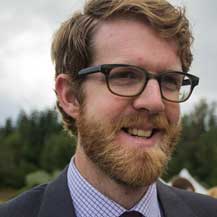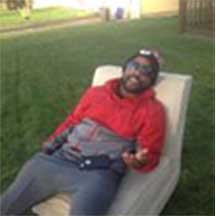 Planners are burdened by a heavy responsibility. Planners are responsible for creating, maintaining, and improving peoples’ hometowns. Hometowns are not just the places where we live; rather they are the spatial manifestation of our lives. Hometowns are the floor, walls, and roof of our identities. The places we are from, and the places we live, inform who we are. We have pride in our communities because our lives are wrapped up in our communities.
Planners are burdened by a heavy responsibility. Planners are responsible for creating, maintaining, and improving peoples’ hometowns. Hometowns are not just the places where we live; rather they are the spatial manifestation of our lives. Hometowns are the floor, walls, and roof of our identities. The places we are from, and the places we live, inform who we are. We have pride in our communities because our lives are wrapped up in our communities.
It is a loaded question to ask someone “where are you from?” The answer is not merely a piece of data, but a slice of identity. When I answer that question, I say that I’m from Flagstaff, Arizona. But my answer – Flagstaff, Arizona – is so much more than a set of coordinates on a map. Flagstaff is the city where I learned to drive in a 1986 Toyota Tercel through a harsh winter in one of the snowiest cities in America. Flagstaff is where my family’s house was perched on the edge of Walnut Canyon, where I spent summers and weekends exploring from our backdoor and gaining a respect for nature that continues to guide my values and goals. Flagstaff is where I was a bass player in a high school rock band with two of my best friends who I would go on to move to Oregon with after college. When I answer with the words “Flagstaff, Arizona,” I’m not just saying where I’m from, but where my identity was formed.
Here in Eugene, Oregon, I am on the Community Planning Workshop Team project for the Lake County Parks and Recreation Master Plan. Lake County has never had a parks and recreation plan, so a big part of our project is identifying what residents want in their parks and recreation opportunities. To that end, we recently conducted interviews with about 30 stakeholders. We asked them to tell us about Lake County. We asked what people like to do for fun in Lake County. We asked why Lake County is special. In short, we asked “where are you from?”
The answers we heard were not simple street addresses or names of locations. We heard about the qualities that make Lake County special. We heard about the trails that start right in town and end at magnificent viewpoints. We heard about the swimming pool where families meet and enjoy summer afternoons. We heard about fishing spots where grandfathers teach their grandsons how to cast a fly. We heard about dispersed campsites where relatives meet every year to tour the back country on ATV. We heard about high school gyms where local rivalries are fought and won.
As outsiders, the answers to our interview questions might seem simple, but we will never fully understand their true meaning to the residents of Lake County. Just as no one will ever know exactly how Flagstaff, Arizona is wrapped up in my identity, we will never know exactly what Lake County means to those who call it home. Nevertheless, we do the best we can. We listen earnestly, we read extensively, and we work tirelessly to do the stakeholders justice and create a parks and recreation master plan that channels the identity of Lake County.
 About the Author: Rory Isbell is from Flagstaff, Arizona and is in his second year at the University of Oregon pursuing degrees in law and community and regional planning.
About the Author: Rory Isbell is from Flagstaff, Arizona and is in his second year at the University of Oregon pursuing degrees in law and community and regional planning.

